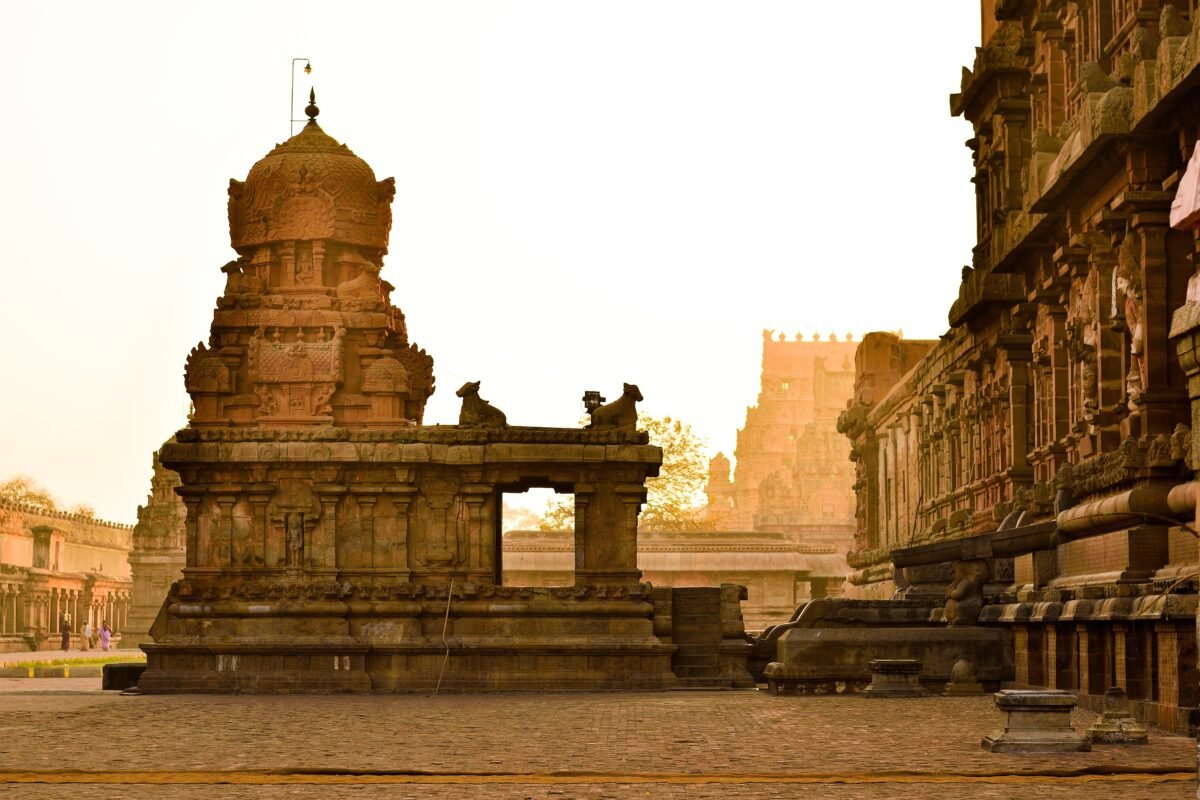Evolution and involution of Reals from Impure Maya
அருத்திமிகும் கலைகாலம் நியதியடன் வித்தை
தத்துவங்களின் தோற்ற ஒடுக்கம்
அராகம்இவை அனக்தரால் மாயைதனி லாகும்
உருத்திரராற் கலையதவில் பிரகிருதி குணங்கள்
உளவாகும் ஆங்காரம் புட்திதனில் உதிக்கும்”
தெரித்தவிது திரிவிதாரம் தைசதவை காரி
திகழ்தருபூ தாதியெனத் கிருந்தியசாத் துவிதம்
விரித்தகுணம் மனம்புத்தி இந்திரிய மென்று
விளம்பியசோத் இிராதிமுதல் வீளங்கியிடும் வீரிந்தே. 26
The reals which incline the soul to worldly experience namely time, destiny, animation, intimation, and inclination are evolved out of impure maya through the agency of Anantha; and from the real of animation (kala) Mulaprakriti is evolved, through the agency of Srikanta Rudra. From Mulaprakriti is evolved the real of Guna from which emanates the real of judgment or intellect (புத்தி) and from judgment is evolved the real of willing (ஆங்காரம்)- Ahankara is of three kinds according as the satwic, Rajasic or Thamasic quality dominates. From Satwic Ahankara (தைசதம்) evolved the mind and the five senses of hearing, touch, sight, taste, and smell.
மன்னியகன் மேர்திரிய மானஇரா சதஞ்சேர்
வாக்காதி வைகாரி மருவிவரும் சத்தம்
தன்னைமுத லரகியதா மதமிகுமாத் திரைபின்
தரும்இதனில் வான்அ௮நிலம் அனல்புனல்மண் சத்தழ்
முூன்னதனில் வெளியாதி ஓன்றொன் ராகும்
முறையிலுறும் இருமைஅயன் முடிவா முன்னே
உன்னுசதா சிவராதி அதிபதிகள் ஓடுக்கம்
உதித்தஅடை வெனஉரைப்பர் உணர்ந்து ளோரே. 27
From the Rajasic Ahankara (Vaikari) are evolved the reals of activity beginning with speaking. From Thamasic Ahankara (Bhutati) emanate the five subtle bases (Tanmatra) of the five elements beginning with the principle of sound. The five elements, ether, air, fire, water, and solid are developed each out of its respective Tanmatra. The titular deities of the five elements are Brahma, Vishnu, Rudra, Maheswara, and Sadasiva of the regions in pure maya. According to the opinion of the learned the reals undergo involution into the bases from which they are evolved.
Karma
நண்ணியிடும் உருவதலுக் கேது வாகி
கன்மம்
நானாபோ கங்களாய் காசோற் பத்தி
பண்ணிவரும் ஆதலால் அனாதி யாகிப்
பலவாகி அணுக்கள் தொறும் பட.ர்வ தாக
எண்ணிவரு மனவாச கன்மத்தா லியற்றும்
இயல்பினதாய் மதிகதமாய் இருபயனாம் பாவ
புண்ணியமாய்ப் புலர்காலை மாயை மேவிப்
பொருந்துமிது கன்மமலம் (கலு மாறே. 28
Karma is the cause of bodies and multifold bodily experiences, and causes births and deaths, and is beginningless. It affects each soul differently and is many sided. It is committed through thought, word, and deed, and it takes shelter in the real of the intellect. It takes the form of merit and sin producing its two-fold result. At the time of dissolution of reals, karma sinks down to the substratum of impure maya. This is the nature of karma.
கன்மமெறி இரிவிதம்ஈற் சாதிஆயுப் போகக்
கடனதென வருமூன்றும் உயிரொன்றிற் கலத்தல்
தொன்மையதூ ழல்லதுண வாகா தானும்
தொடங்கடைவின் அடையாதே தோன்றும் மாறித்
தன்மைகரு தெய்விகமுற் பெள திகம்ஆன் மிகமாம்
துகையிலுறும் அசேதனசே தனத்தாலும் சாரும்
ஈன்மையொடு தீமைதரு சேதனனுக் கிவண்ஊண்
நாடில்அதன் ஊழ்வினையா ஈணுகுந் தானே. 29
The path of karmic result is threefold as organism, age, and experience. These three attaches to each soul as a result of past karma, as what is not destined cannot be made the subject of experience. The results of karmic acts do not always follow their happening. They issue through accident, action of elements, and acts of souls and may happen through intelligent and unintelligent agents. The soul doing good and evil acts will be found on investigation to be influenced by its past karma.
மேலைக்கு வருவினைஏ தென்னின் அங்கண்
விருப்புவெறுப் பெனஅ௮றிஅவ் வினையும் எல்லாம்
மூலத்த வினைப்பயில்வாம் என்னின் நாம்என்
மூற்றிஅதன் பயன் உனக்கு முளைக்கு மென்பர்
ஞாலத்து வினைகள்இரு இறனாகும் புக்தி
நண்ணாத வினைஈணுகும் வினையெனஒன் றிரண்டாம்
ஏலத்தான் இதம்அகித மாம்இதனால் வழுவா(து)
எய்தியிடும் புண்ணியபா வங்க ளென்றே. 30
If it is asked how karma for the future arises, it should be borne in mind that it results from the likes and dislikes which arise in the course of experiencing the fruits of past karma. If such likes and dislikes be viewed as resulting from past karma, they are not simply experienced as such, but they engender the egoistic feelings of love and hate which develop and ripen into future karma. Karmic acts in the world are of two classes, those done with knowledge and those done without knowledge. Each is of two kinds according as it causes pleasure or pain and are respectively termed acts of merit and sin which unfailingly affect the soul.
உற்றதொழில் நினைவுரையின் இருவினையும் உளவாம்
ஒன்றொன்றால் அழியா தூண் ஓூரியா துன்னில்
மற்றவற்றின் ஒருவினைக்கோர் வினையால் வீடு
வைதிகசை வம்பகரும் மரபில் ஆற்றப்
பற்றியது கியும்இது வீலையால் ஏற்கும்
பான்மையுமாம் பண்ணாது பலிக்கும் முன்னம்
சொற்றருநரல் வழியின்வரின் மிகுதி சோரும்
சோராதங் கதுமேலைத் தொடர்ச்சி யாமே. 31
The twofold karma is committed in the form of word, thought, and deed. One karmic act is not destroyed by another, and each affects the soul independently and unfailingly. However, when a sinful act is expiated in the way indicated in vedic and Saivite scriptures, its attachment to the soul is annulled. Expiation may be done by a paid deputy. Without the expiation the effects of sin may be counteracted by pursuing a right course of conduct prescribed in scriptures, as a result of which the strength of sin will fade and whatever residue remains may continue to affect the soul lightly in the birth to come.
